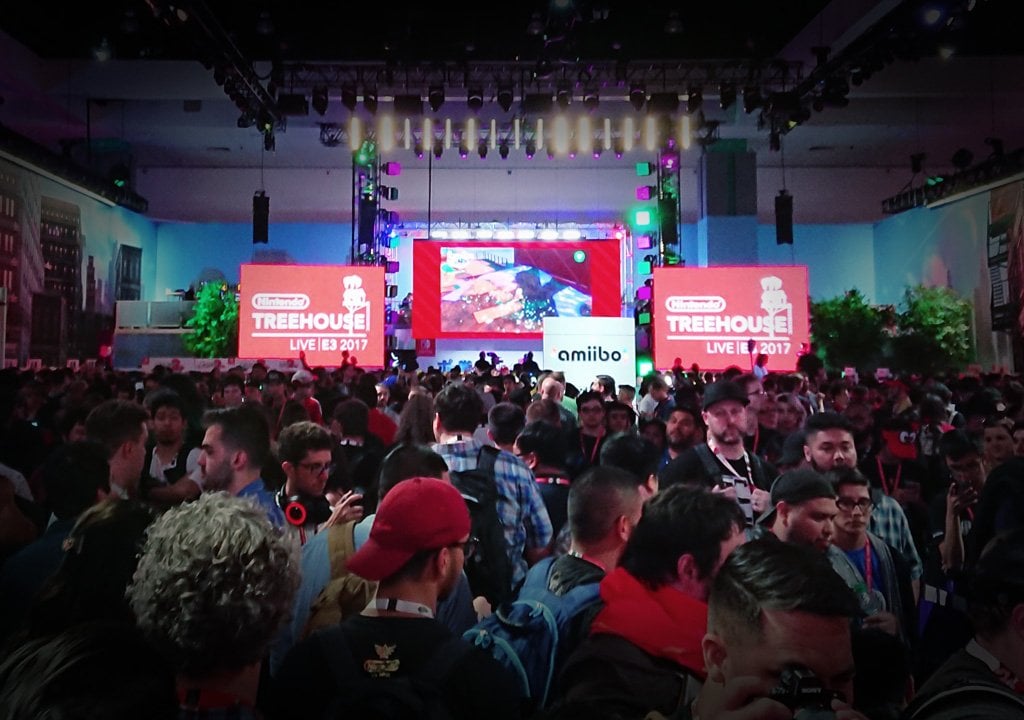E3, GamesCom and TGS: a year without videogame fairs

Some events have had time to reorganize themselves to offer an exclusively online experience but others have found themselves in the eye of the storm suddenly, when the world scenario and the various lockdown had not yet been finalized, and they couldn't help but desist in hopes of returning next year.
PS5 and Xbox Series X | S
the crisis of the fairs occurred precisely in the year of the debut of PS5 and Xbox Series X | S, therefore in the middle of a generational change. The new consoles from Sony and Microsoft are still paying these days for the consequences of the lockdown that blocked the production of hardware components for the two platforms for several weeks, given the very limited stocks available.The disappearance of traditional events it also led to an inevitable backlash on the media level, with the need to completely reorganize the marketing strategy. We imagine that the Redmond house would have gladly taken advantage of the E3 2020 stage to present the new Xboxes and show them to the public, while Sony was probably thinking of launching its own showcase to do the same.
If the two producers have certainly had some difficulties due to the cancellation of all the fairs and a switch to digital that has significantly weakened their scope, despite everything they managed to show their consoles to the public thanks to a mix of resources and communication. The situation for publishers, however, has inevitably been more complicated.
It had never happened that the price and release date of the next-gen platforms were communicated so close to the actual launch: the official information relating to PS5, Xbox Series X and Xbox Series S arrived in September , two months before its debut, and it was only then that several developers were able to talk freely about next-gen features and upgrades for their games.
Nintendo
Although inevitably touched by events on the production level, Nintendo did not have communication difficulties during 2020, having passed for several years to a form of exclusively digital presentation with the various Direct, often announced at the last second. During these months we have seen about ten events, the last of which showed the Super Nintendo World, the theme park near Osaka that will open its doors in February.Previously they were protagonists of this format the Pokémon (January), Animal Crossing: New Horizons (February), Super Mario Bros. for the thirty-fifth anniversary (September) and Monster Hunter (September), to which we must add the various Direct Mini and those dedicated exclusively to productions third party. On the level of the actual releases of a certain importance, however, even the Kyoto house seems to have felt the blow, resting on the laurels of the extraordinary success of the aforementioned Animal Crossing.
The new reality
As mentioned at the beginning, some fairs did not have time to organize a transformation into an online event, others succeeded due to the broken headphone but the results were not amazing. However, we have seen the debut of new actors, above all the American magazine IGN, which with its many appointments starting in June.The change has been drastic: accustomed to traditional conferences and to the fact that all publishers using them for their most important announcements, we instead found ourselves in a sort of infinite cauldron, in which practically anything could happen at any time, without warning. A situation that is perhaps amusing from the point of view of the users, a little less than that of the trade press, and in any case much less exciting than the good old stages of Los Angeles and Cologne.
We lived in practice a three months of tight events, very dispersive, and even the most important publishers had to equip themselves. In July there was the first Ubisoft Forward with the dates of Watch Dogs: Legion and Assassin's Creed Valhalla, as well as the reveal of Far Cry 6, while a few days later Microsoft presented the exclusives for Xbox Series X with the much criticized demo of Halo Infinite.
At the beginning of August there was the State of Play that everyone was anxiously waiting for but in which Sony did not make the hoped-for announcements, still postponing the officialization of the date and price of the PS5, and during the same month the digital edition of Gamescom took place, but we will certainly not remember for the importance of the reveal presented.
Basically the traditional bombs came from the special events organized by Sony and Microsoft, even though Geoff Keighley had time to take measures to the current situation and prepare the best possible edition of the Game Awards in December, thus trying to end a very complicated year in a dignified manner.
2020 In fact, it may have forever changed some aspects of the gaming industry that we now took for granted. The concept of promotion in the presence, of visitors and public (paying or not), conferences: everything has been strongly questioned and it is not certain that next year we will go back, admitted and not granted that by then the emergency has returned completely.
It is still too early to take stock and understand what effects this revolution has had on the ways in which companies were used to presenting their products. We are all confused and dazed by a profoundly changed world, by the canceled social interactions, by the new rules of life and by how these have influenced our behavior.
Certainly this year without fairs has taught us that it is possible to survive without events in attendance, that the gaming industry can somehow reorganize and grow anyway, but that equally certain emotions will be difficult to replace. But perhaps it is already nostalgia that speaks for us.